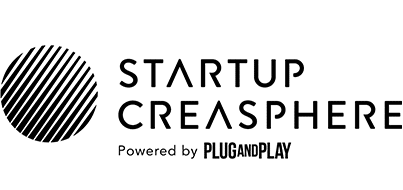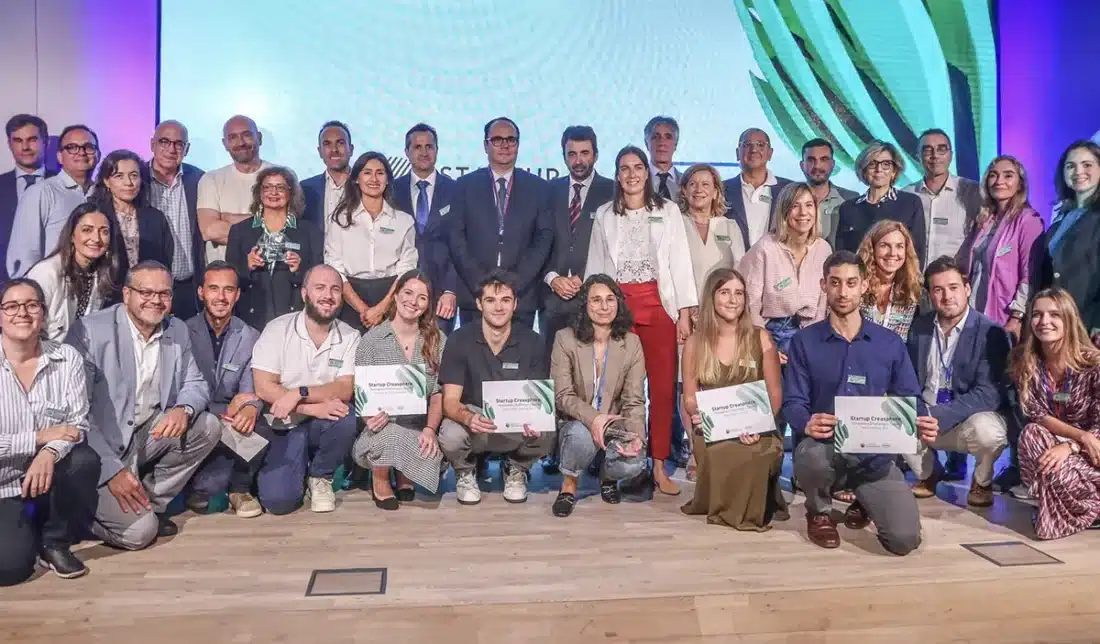
Two startups and the University Hospital of Navarra awarded by Startup Creasphere in Spain
In this edition of the Startup Creasphere, the Roche innovation platform in Spain focused on ophthalmology and hepatocellular carcinoma, with a total of 56 participating startups from Spain and various European countries.
Roche Pharma Spain has announced the winners of Startup Creasphere, a global innovation initiative developed this year in collaboration with Plug and Play to attract, recognize, and promote innovative and disruptive initiatives developed by startups and hospitals to improve patient health and quality of life. This new edition focused on the areas of ophthalmology and hepatocellular carcinoma.
After months of work, the innovation platform held its Demo Day (final) to determine the winners of this edition. Finally, the expert committee acting as the jury decided to award the startups Naru Intelligence (Spain) and Novai (UK), as well as the University Hospital of Navarra, which won in the hospital project category.
Naru Intelligence was awarded in the Hepatocellular Carcinoma category for its Step Oncology tool, an AI that reduces serious complications in cancer patients and aims to improve their quality of life after hospitalization. The tool ensures data collection and valuable information gathering without clients losing control and ownership of their data.
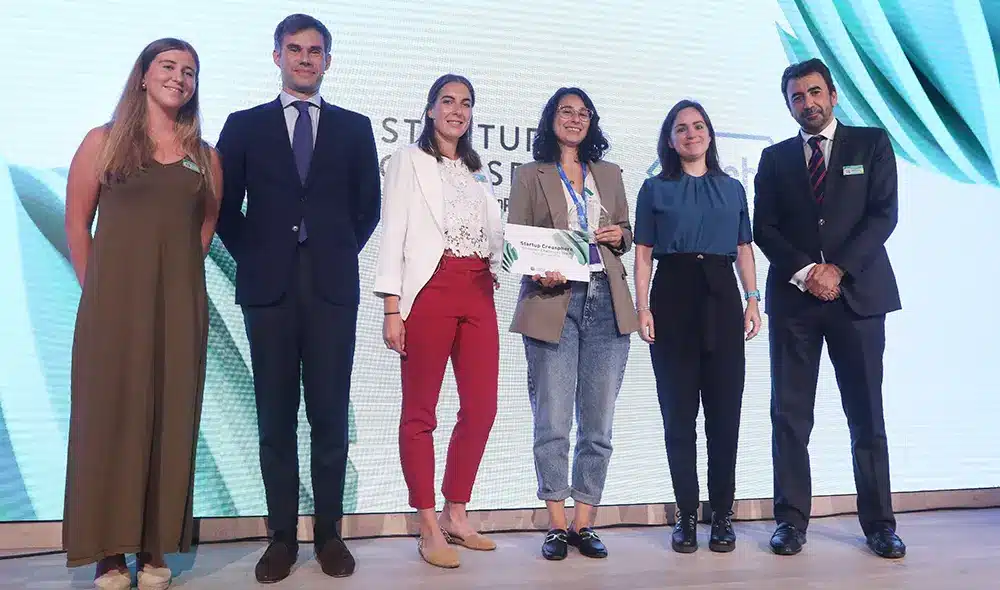
Regarding Novai (UK), awarded in the Ophthalmology area, it has developed a biomarker that allows detecting and imaging individual stressed cells in the retina and using these image data to predict disease progression. The AI-based platform, along with the biomarker, helps diagnose and predict the progression of glaucoma and Age-related Macular Degeneration (AMD). It is formulated as an intravenous injection given to the patient two hours before image capture.
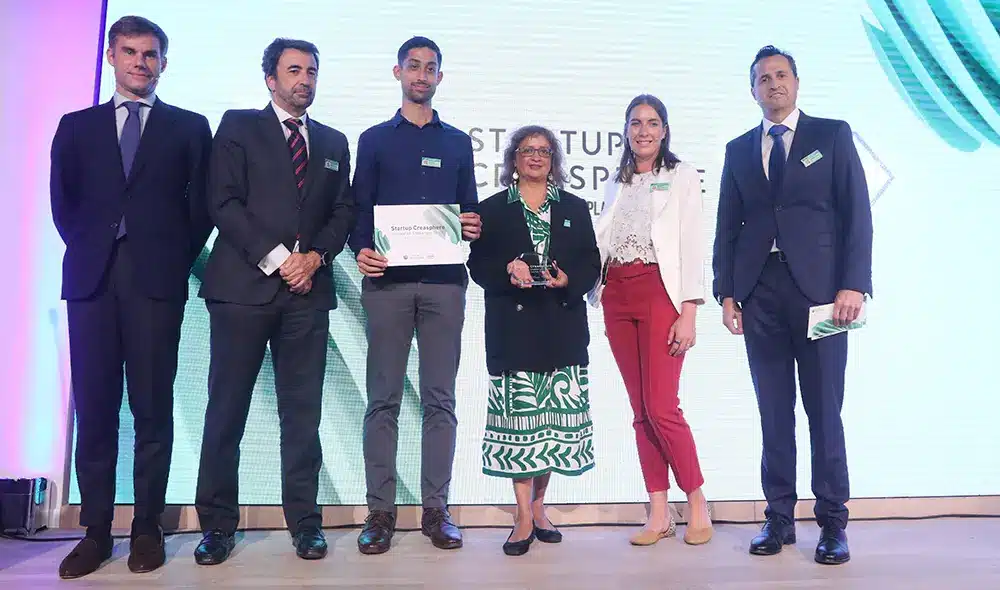
In the hospital field, the winning initiative was NaIA-AMD from the University Hospital of Navarra, an AI product designed to automatically and instantly detect and measure retinal fluid in Optical Coherence Tomography (OCT) of patients with AMD and Diabetic Macular Edema (DME). During each patient review, NaIA-AMD allows automatic detection of fluid in all OCT cuts, differentiating between intraretinal, subretinal, and retinal pigment epithelium detachment fluid, and provides an accurate and objective measurement of the total fluid volume in each of the three locations.
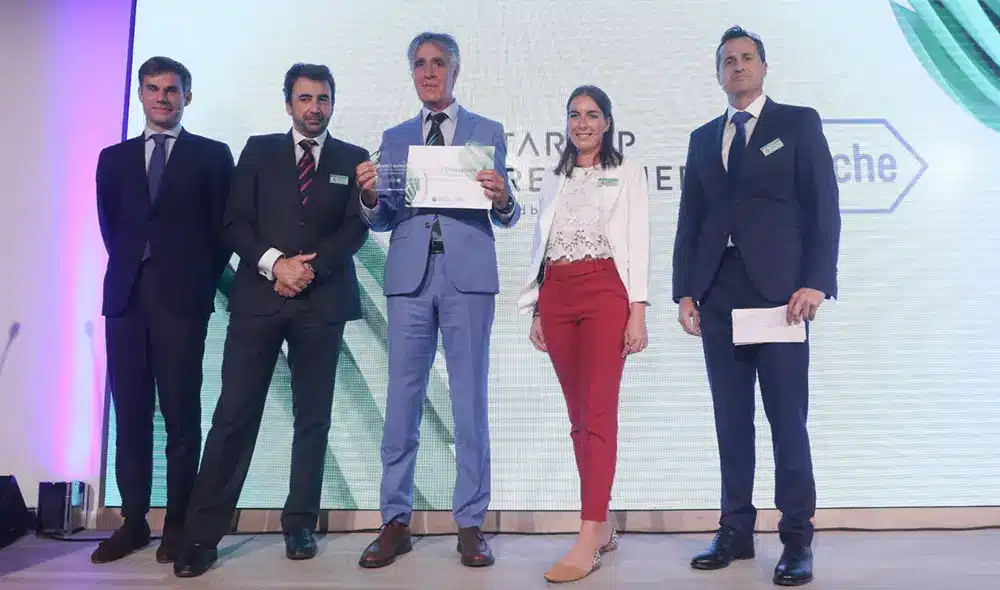
The three projects were chosen by the Startup Creasphere expert committee, who are professionals of recognized prestige in their specialty areas in reference centers, during the Demo Day event, the final session of this initiative. In addition to benefiting from the acceleration process and expert advice, the winners will have the opportunity to participate in the Startup Creasphere Expo Day, an international innovation event held twice a year on different continents.
The final of the Spanish edition was inaugurated by Miguel López-Valverde, Councilor of Digitalization of the Community of Madrid, who emphasized the importance of digital transformation in healthcare. “It is essential that we all see the importance of entrepreneurship in the technology sector, especially in health, and that we find innovative ideas that facilitate and help in the lives of our citizens and patients. Technology is currently a lever for change, not only for the healthcare and pharmaceutical world but for society as a whole. Therefore, we must all try to ensure that this ecosystem of startups and entrepreneurship gains even more importance,” he said.
Patrick Wallach, General Manager of Roche Pharma Spain, reaffirmed the company’s commitment to health innovation. “For us, innovation is not a theoretical concept. It is a firm and tangible commitment that we apply not only in R&D processes but also in our digital solutions. We must be able to capture the brightest ideas wherever they arise, whether in startups, academic institutions, hospitals, or research centers, and work together to make them a reality,” he explained.
For her part, Christina Niedermeyer, Plug and Play Senior Manager Corporate Innovation & Global Program Lead, explained that “Startup Creasphere was founded with the vision of transforming the health sector. The idea was to have an open innovation platform in digital health, connecting all relevant actors to collaborate, share ideas and solutions, and integrate emerging technologies. We are convinced that the focus on co-creation and pilot projects is key to the success of the Startup Creasphere program, and we are proud to see how this initiative has evolved into a global platform driving health innovation.”
Gonzalo Arévalo, Director of Institutional and International Relations of the Vanguard Health PERTE of the Ministry of Science, Innovation and Universities, closed the event by emphasizing the importance of programs like Startup Creasphere, which enable a leap in disruptive innovation. Likewise, Arévalo highlighted that “the health sector is strategic for the country” and added that, in this sense, “the Vanguard Health PERTE has a strong component of seeking disruptive research and innovation.” He emphasized that “we have capacities that are outstanding, we are a reference in many areas, and we have a society to which we must give back. One of the strategic objectives of the PERTE is the incorporation of new technologies in the form of products and services in healthcare, which will not only allow us to improve services to our citizens but also to be developers of services to third countries,” he added.
Finalist Projects
In addition to the winners, two other startup projects (one Spanish and one German) and one from the hospital field, presented by the Association of Pharmacists of Primary Care Services of the Balearic Islands (FARUPEIB), were finalists.
Specifically, in the area of ophthalmology, the finalists were the projects of DeepEye (Germany) and Naveta (Spain). DeepEye is a platform that uses AI to help doctors personalize the treatment of chronic retinal diseases. Specialists can request a second opinion from resident doctors for designing these intravitreal injection treatments, which is time-consuming and delays the process. This solution allows the specialist to obtain that second opinion on the treatment design in a fully automated way.
Naveta Algopromia, developed by the Association of Pharmacists of Primary Care Services of the Balearic Islands (FARUPEIB) and presented by Dr. Gabriel Mercadal, President of FARUPEIB, is an online virtual library of patient-reported outcomes questionnaires in Spanish. Its aim is to promote value-based medical care for patients with serious chronic diseases by implementing processes and strategies related to the electronic delivery of health outcomes and the use of telemedicine tools.
In the area of hepatocellular carcinoma, Higia.AI (Spain) was a finalist, which is an AI solution that seeks to provide personalized healthcare by analyzing patient data from multiple sources to identify individual risk factors and predict the likelihood of developing chronic liver diseases and six other diseases. This solution helps patients and healthcare professionals take proactive measures to prevent or manage chronic diseases through personalized recommendations and intervention opportunities, such as lifestyle changes, medication adjustments, or additional reviews.
More than 50 initiatives presented
The finalist projects were chosen after surpassing their rivals last May on Selection Day, a day where the fifteen startups and eight hospitals that had passed the initial phase of the call (initially, there were 56 applications from startups from Spain and other European countries) presented their proposals to the expert committee.
The projects chosen on Selection Day have benefited during these months from Plug and Play’s innovation acceleration platform, and in the case of startups, from the expert advice in various disciplines –including experts from Roche– that allowed them to explore solutions collaboratively, boost investments, share knowledge, and facilitate international expansion. Regarding hospital projects, Roche and Plug and Play’s platform allowed them to assess their applicability throughout the clinical and care process of patients and overcome various obstacles to make them a reality.
When selecting projects, the expert jury, whose members can be consulted on the Startup Creasphere website, considered a series of weighted criteria such as the quality of the solution, the team, the impact on the patient’s life, and the benefit for hospitals and healthcare professionals.
